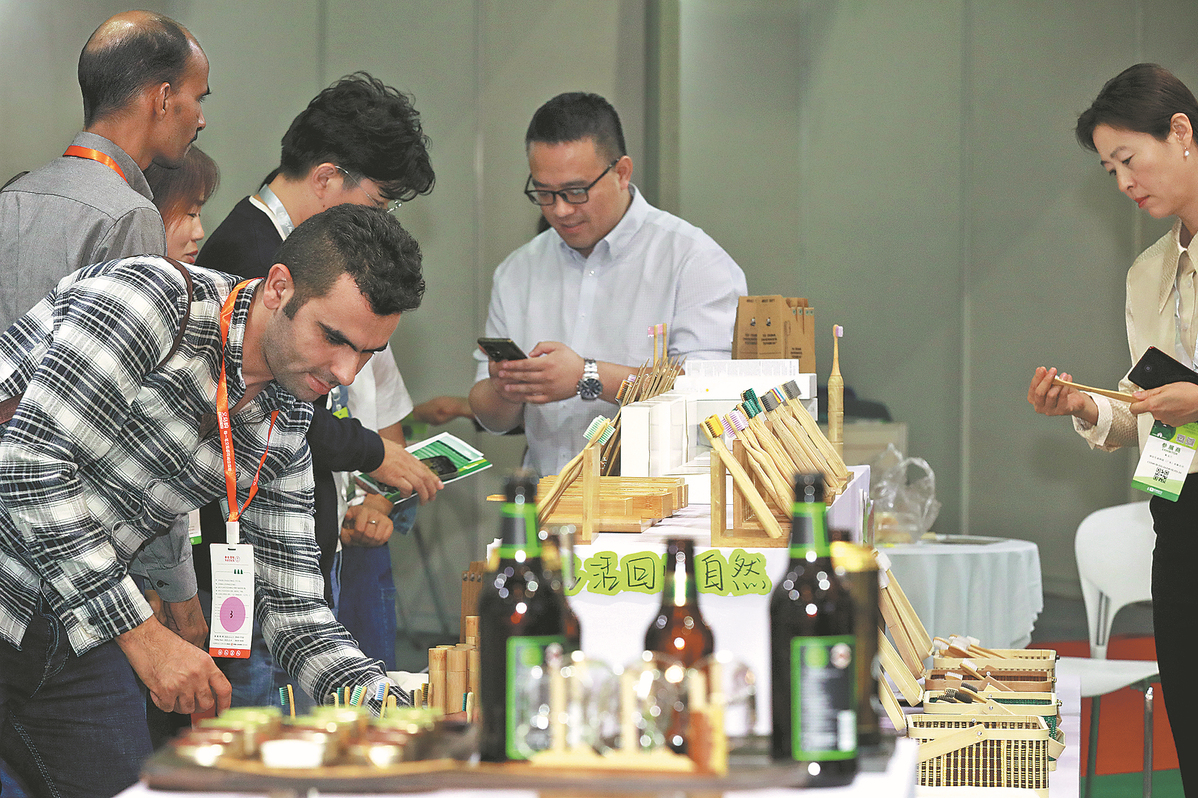
A special section that promotes the replacement of plastic products with bamboo draws visitors to the China Yiwu International Forest Products Fair in Yiwu, Zhejiang province, on Nov 1.
China launched a three-year action plan during a symposium on Tuesday to promote the use of bamboo as a substitute for plastic to reduce pollution.
The plan aims to build an industrial system centered around bamboo substitutes, focusing on the development of bamboo resources, deep processing of bamboo materials and expanding bamboo use in markets, the National Forestry and Grassland Administration said.
Over the next three years, China plans to establish about 10 bamboo substitute application demonstration bases in regions abundant with bamboo resources. These bases will conduct research and form standards for bamboo products.
The administration added that China has abundant bamboo resources and potential for industrial development. The output value of the bamboo industry has grown from 82 billion yuan ($11 billion) in 2010 to 415 billion yuan last year. The output value is expected to surpass 1 trillion yuan by 2035, the administration said.
Fujian, Jiangxi, Anhui, Hunan, Zhejiang, Sichuan, Guangdong provinces and the Guangxi Zhuang autonomous region accounted for about 90 percent of the nation’s bamboo coverage. There are more than 10,000 bamboo processing enterprises nationwide.
Wang Zhizhen, an academician of the Chinese Academy of Sciences, told the symposium that China will continue to deepen cooperation with the world in green infrastructure, green energy and green transportation.
“Bamboo resources are widely distributed in developing countries participating in the Belt and Road Initiative. China is willing to deepen South-South cooperation through the BRI and contribute solutions to promote sustainable development,” she said.
The first international symposium on bamboo as a substitute for plastic was hosted by the administration and the International Bamboo and Rattan Organization in Beijing.
Last year, the Bamboo as a Substitute for Plastic Initiative was introduced at the High-level Dialogue on Global Development on the sidelines of the 14th BRICS Summit held virtually in Beijing.
By promoting the use of bamboo, the country aims to counter the adverse environmental impact caused by single-use plastics. These plastics, made mainly from fossil fuels, pose a significant risk to human health as they degrade into microplastics and contaminate food sources.
Post time: Jan-23-2024


